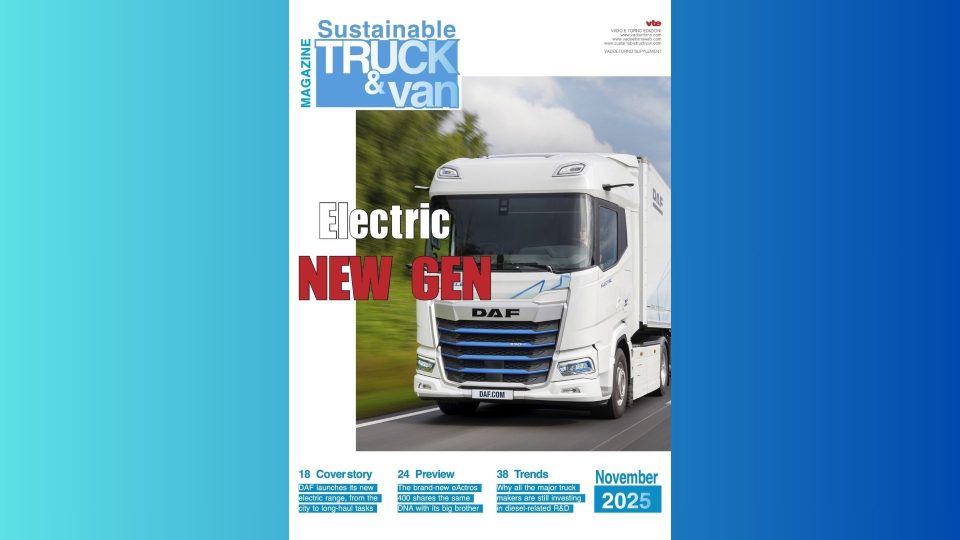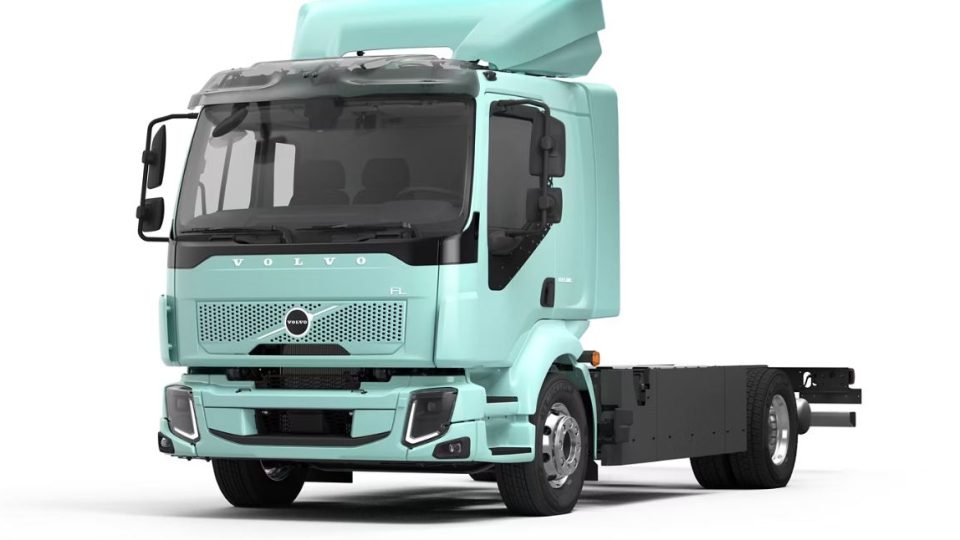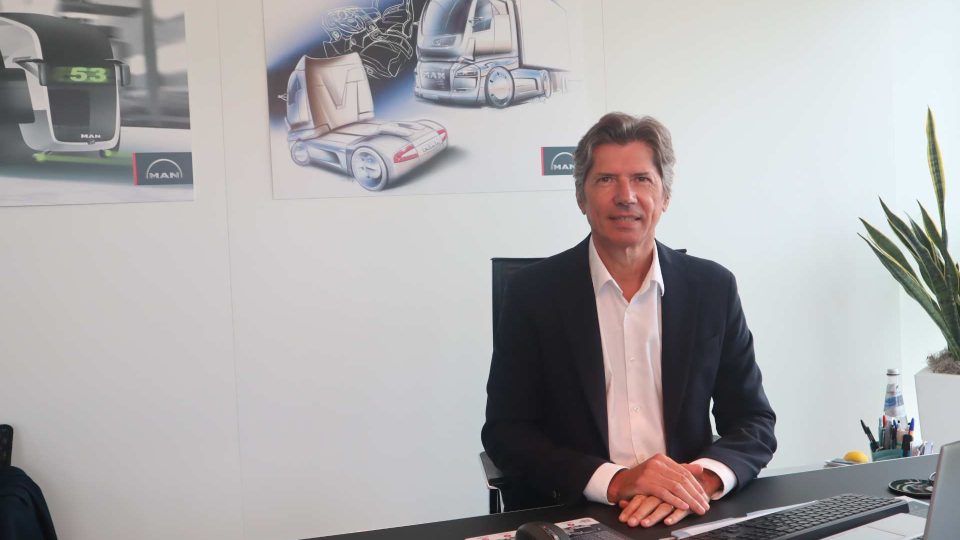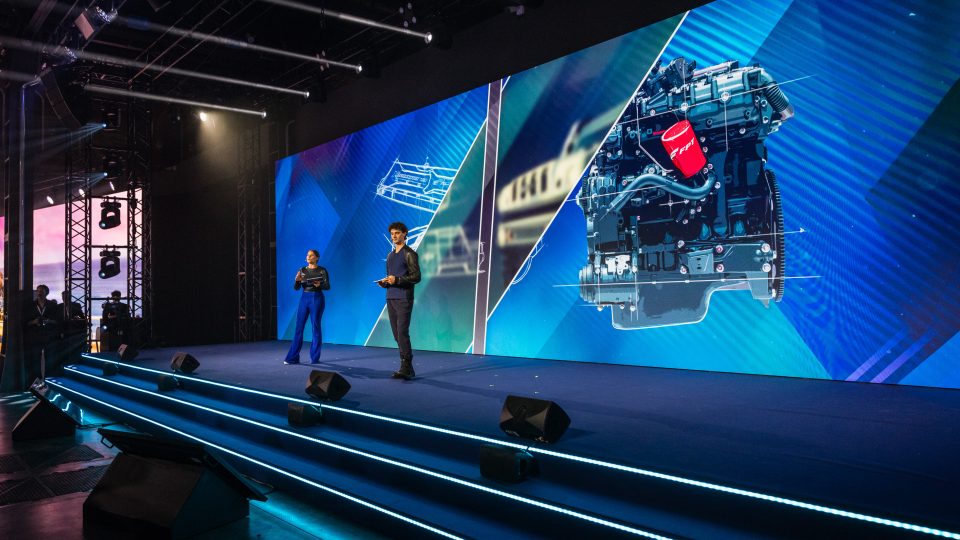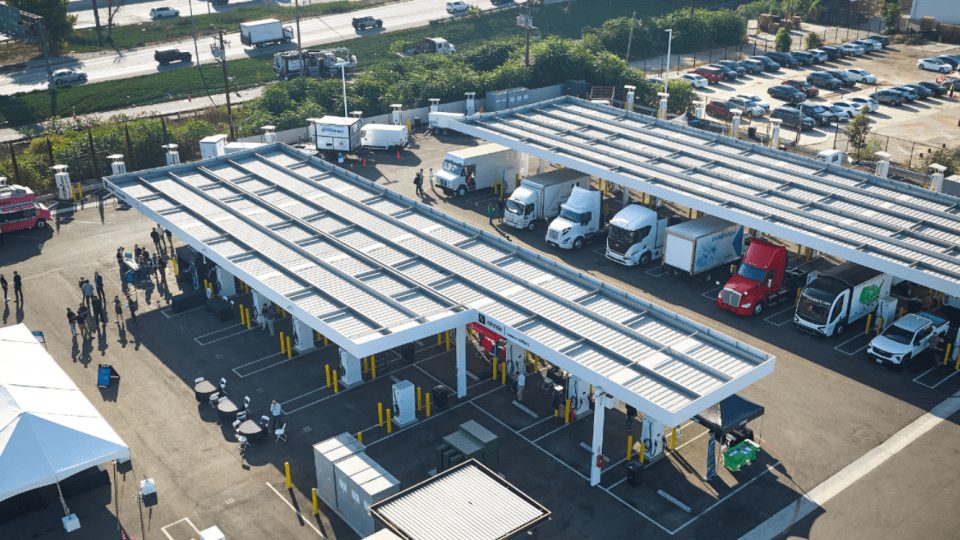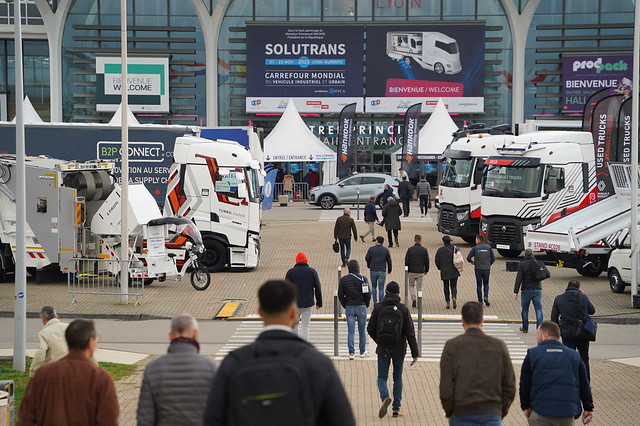«Electric trucks, we bet on ultra-fast charging». Our interview with Roberto Cortes, CEO of VW Caminhões e Ônibus
The starting point of our very pleasant chat with Roberto Cortes, CEO of Volkswagen Caminhões e Ônibus, was the news of the agreement between the Brazilian truck and bus manufacturer and CBMM, among the primary producers of Niobium. We've also talked about electric trucks in South America and the ability to face the pandemic.
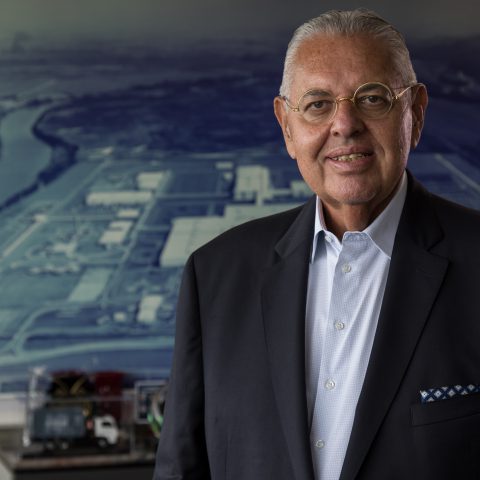
The starting point of our very pleasant chat with Roberto Cortes, CEO of Volkswagen Caminhões e Ônibus, the South-American spine of the Traton Group, was the news of the agreement between the Brazilian truck and bus manufacturer and CBMM, among the primary producers of Niobium. The goal is to test and develop the use of this element in batteries to significantly speed up charging time. «It will take years, but not too many», told us Mr Cortes, who is «eager to work together with CBMM to achieve more sustainable mobility». The CEO of Volkswagen Caminhões e Ônibus also told us about their view and projects on e-mobility as well as the current situation of production following the pandemic outburst and the challenging shortage of key components.
Cortes: «VW Caminhões e Ônibus is an innovative company»
Mr Cortes, why is the agreement signed with CBMM so important?
«Volkswagen Caminhões e Ônibus has always been an innovative company. We’ve often been pioneers and it’s the same as for electric trucks. CBMM came to us and explained the features of the element. Then, we signed this unprecedented partnership in automotive, where Niobium has never been used.
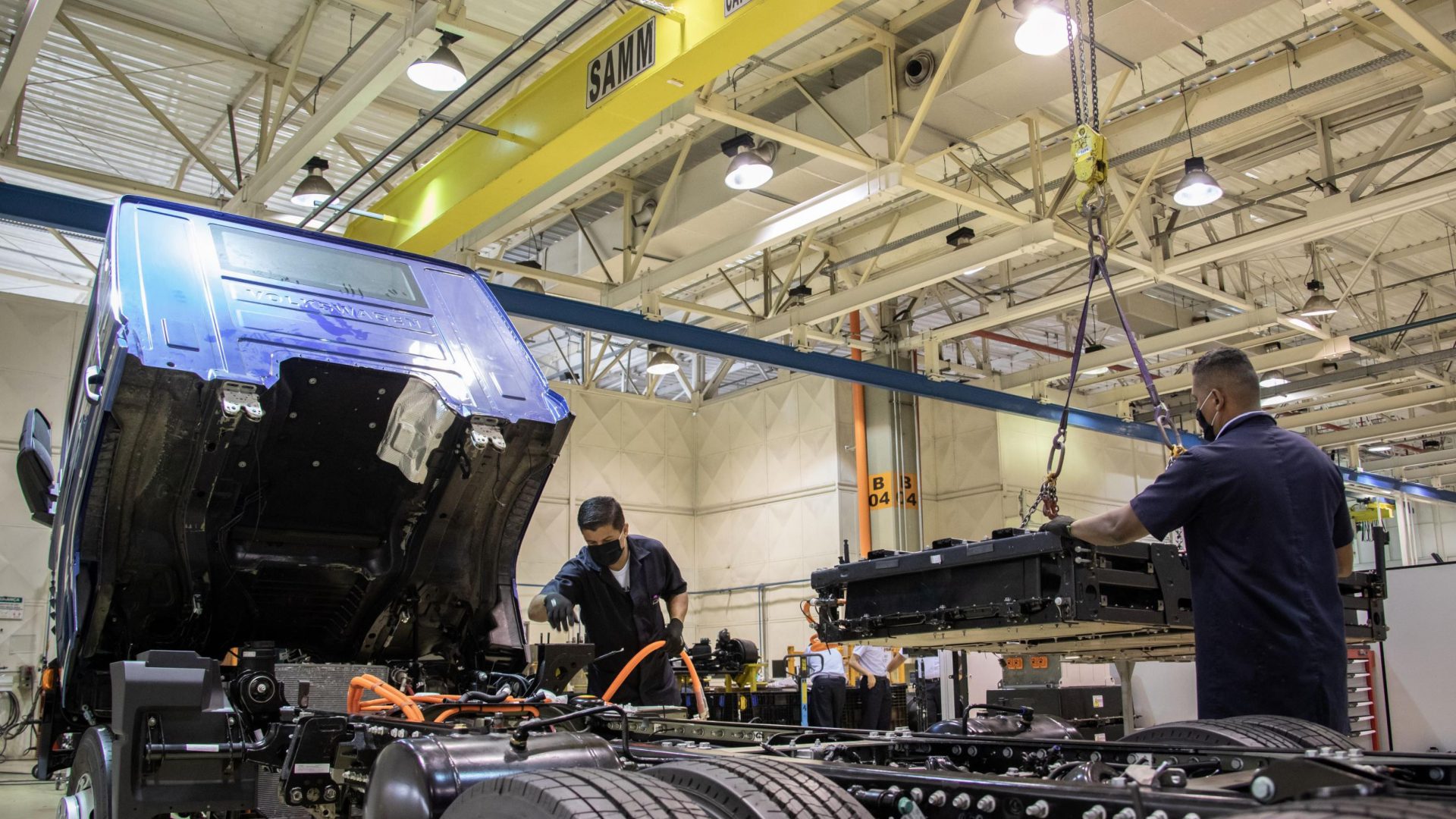
We’re talking about ultra-fast charging. The time to charge batteries in the truck business is indeed an issue. Currently, there’s so much difference between oil refueling and electric recharge, which implies a big gap in terms of productivity. Time is money also in transportation!
For some applications, overnight charging is not enough, that’s why the use of Niobium for this purpose is a true breakthrough for automotive. Our role is in testing trucks using Niobium technology, with the target to charge batteries in ten minutes instead of hours, also improving lifetime and safety».
Electric trucks in Brazil are something really new, but several customers are really interested in electric vehicles. We’re very pleased with this enthusiasm as we’re the only local manufacturer here in South America with such an expertise and capable to provide also the whole surrounding environment
Roberto Cortes, CEO of Volkswagen Caminhões e Ônibus
How long will it take to see the results? And what’s the role of VW Caminhões e Ônibus in the development of the Niobium-based batteries?
«We agreed with CBMM that it will take some years, but not too many, hopefully. We’re ready to contribute with our expertise in the testing and developing stages, hoping that in some years we will be able to rely on this technology, taking advantage of the benefits.
We are also going to monitor, control and analyze data on truck and battery performance. At the same time, we’ll also prepare the entire transportation chain, as everything is going to change also in terms of equipment. We’ll also monitor safety guidelines, as our final goal is to contribute to a more sustainable mobility.
Last but not least, we will be evaluating the benefits and costs of Niobium, which is of course more expensive compared to other materials used in batteries today. I might say that TCO is our obsession and it’s even more important for our customers».
200 eDelivery trucks already sold
How thirsty is Latin America for electric trucks or electric LCVs? Are your customers asking for zero-emission solutions for their fleets?
«Electric trucks in Brazil are something really new, but several customers are really interested in electric vehicles. We’re very pleased with this enthusiasm as we’re the only local manufacturer here in South America with such an expertise and capable to provide also the whole surrounding environment, then infrastructure, service network, spare parts and so on.
We launched the eDelivery only a few months ago and we’ve already sold the first 200 units. Some more orders are coming, as we’ve seen the intention to buy more trucks».
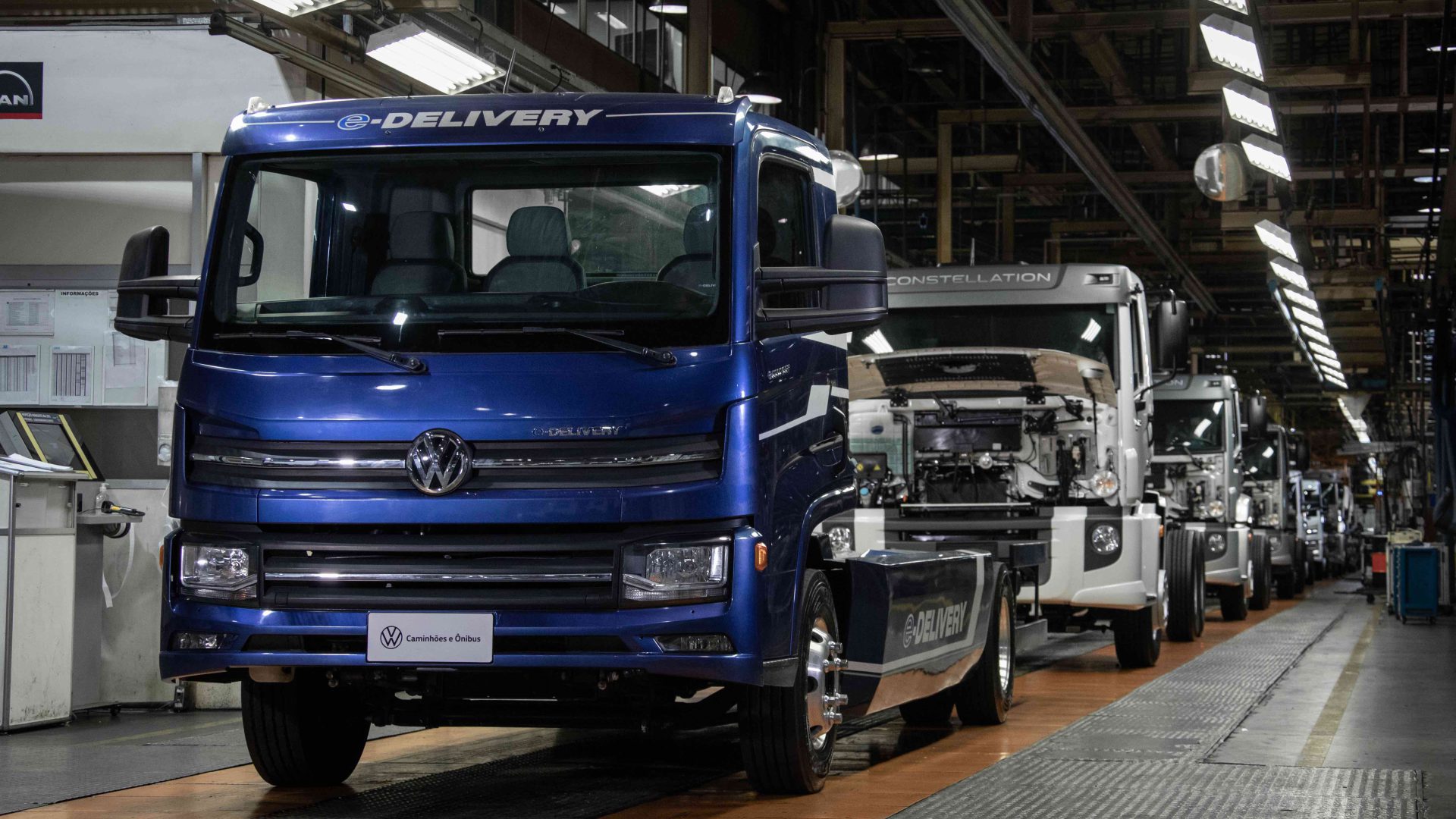
You’ve mentioned the launch of the e-Delivery as the first full-electric truck ever produced in Brazil. Are you planning to extend electrified powertrains also to some more models?
«As part of the Traton Group, we all believe that electrification is the future, as it is the most efficient way considering the whole life cycle. Of course, delivery trucks are the most suitable applications, especially here in Brazil where we don’t have a widespread infrastructure.
Speaking of long-haul trucks, we believe it will take some more time, all over the world and especially in Brazil. It’s definitely too early to say when, but we think some more products will follow».
Where is VW Caminhões e Ônibus’ e-Mobility development center located? How is it working to develop and test e-mobility solutions?
«Being part of a group like Traton is important to have access to technological developments made by other brands and companies within the group. The development center of Volkswagen Caminhões e Ônibus is located in Resende and its R&D team is currently made of around 600 people committed every day to provide the right products for the Brazilian conditions. We also started production in assembly lines over there in Resende».
The Brazilian GDP is supposed to grow by 5 percent this year, which is impressive for us. One of the main leverages of truck sales is the GDP as 60 percent of the goods are transported by trucks. That’s why economy and truck business are closely connected
Roberto Cortes, CEO of Volkswagen Caminhões e Ônibus
Talking about TRATON Group, we’ve heard the news about the new CEO, Christian Levin. What’s your opinion about it?
«Christian Levin was already our COO and we know him very well. For us, it’s really good to have a professional like him, who’s been working in this field for 27 years. I’ve been working with him within the Board and even before his appointment we’ve always worked very well together. The appointment of Christian Levin is definitely good news for the group».
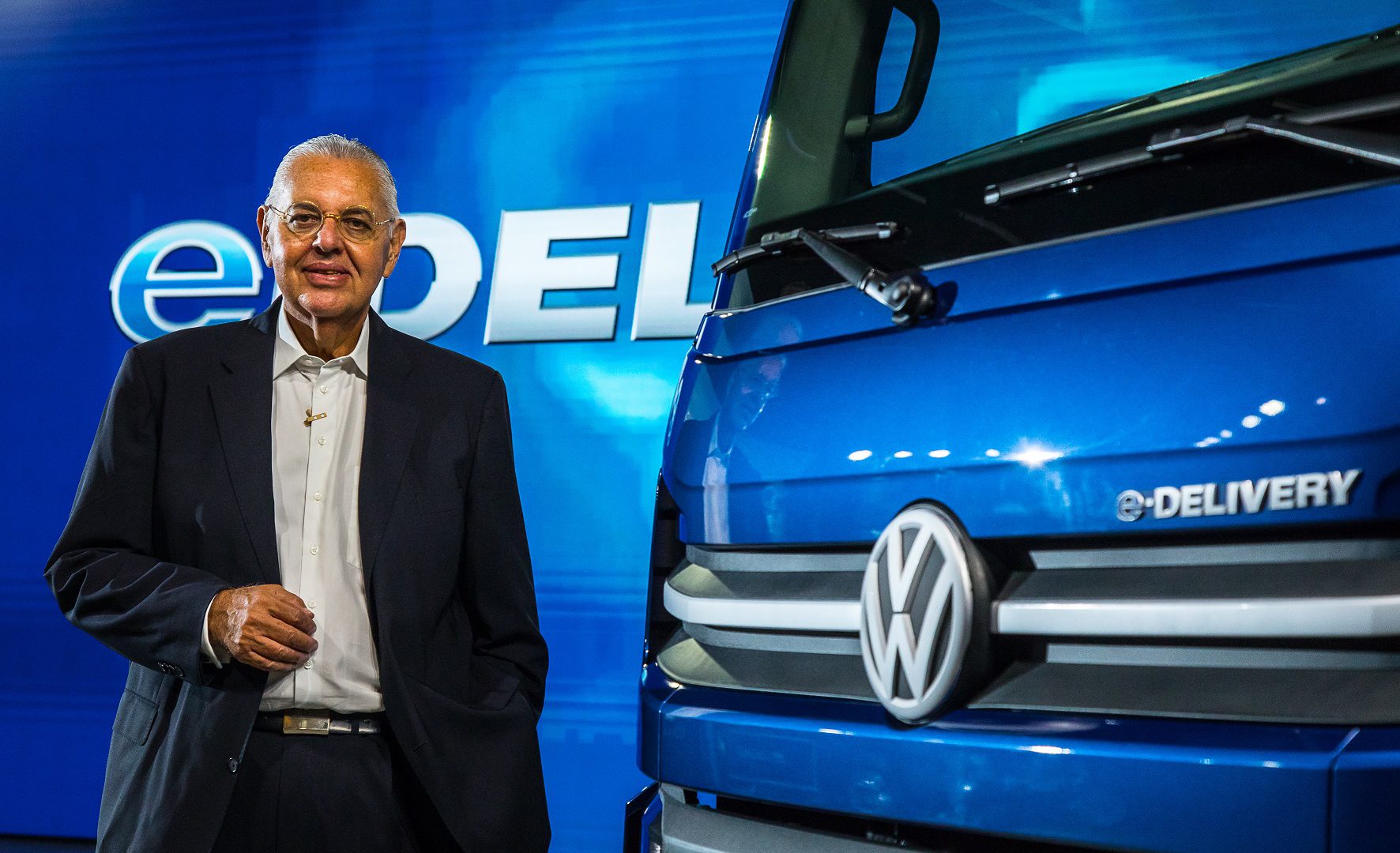
Managing the pandemic in South America
The last couple of years have been quite challenging due to the pandemic. How’s the situation in Latin America? Is it still affecting the activities in the production sites?
«We were hit quite heavily, starting in March, last year. We had to pretty much shut down the country in Brazil. In March/April this year we had what we called second wave and we suffered a lot. Now, I’d say that the pandemic situation in Brazil and other major South American countries is definitely improving in the last months. For instance, in Brazil around 47 percent of the population has already received two shots of the vaccine and around 70 percent, so 150 million Brazilians, got the first shot.
Business and production levels are getting back to almost the normal levels, of course maintaining some safety measures like distance and face masks. As a consequence, the Brazilian GDP is supposed to grow by 5 percent this year, which is impressive for us. One of the main leverages of truck sales is the GDP as 60 percent of the goods are transported by trucks. That’s why economy and truck business are closely connected».
What happened to production last year? Did you have to stop completely during the pandemic outburst?
«We had to stop for almost one month with no people in the factories. We’ve made some changes in our plants, also introducing a new shift in order to produce with the same levels compared to the pre-pandemic time. Now, we’re almost back to normality».
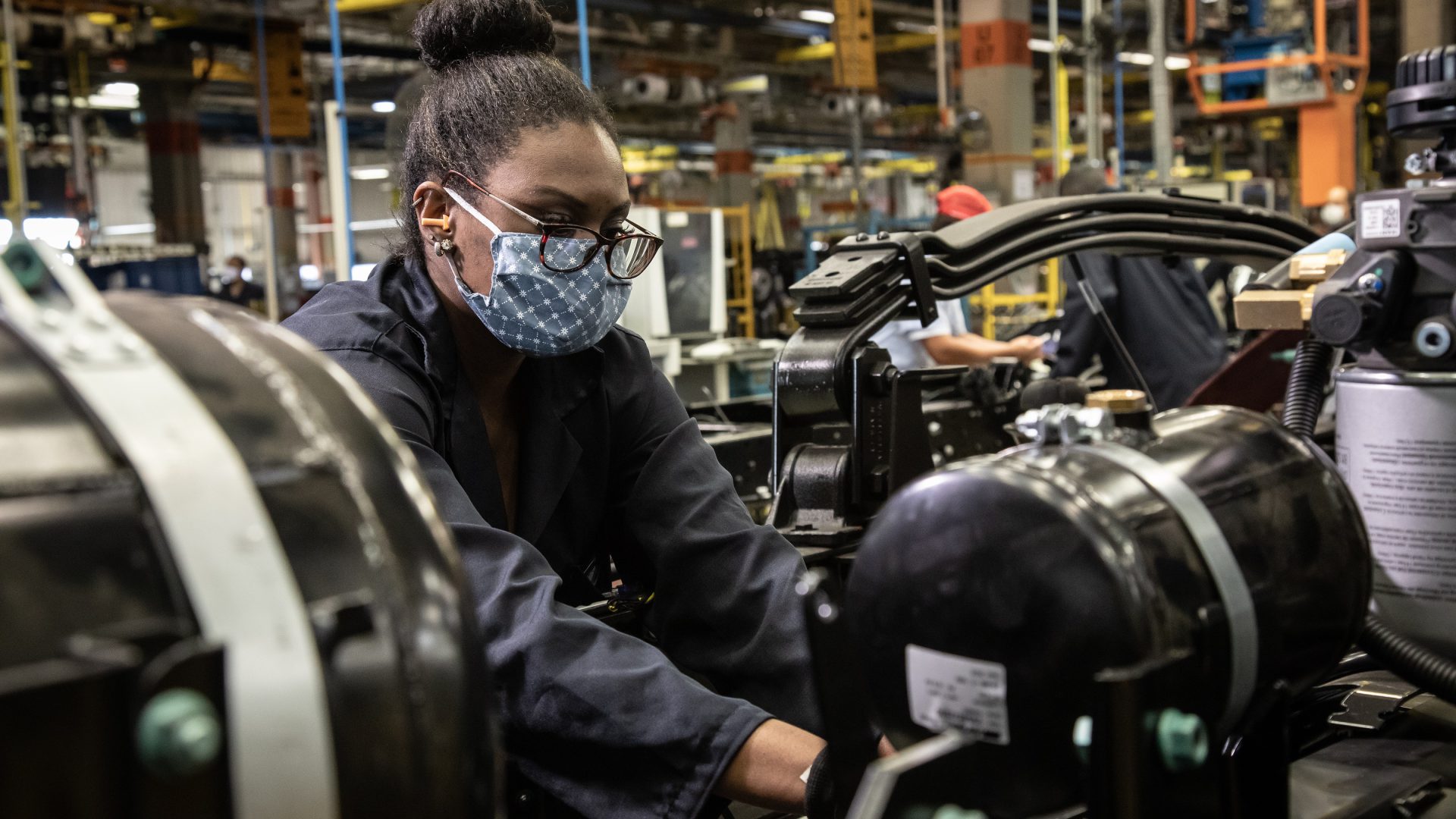
What did it mean to stop production in terms of productivity?
«The direct consequence of stopping production is a reduction in productivity but we did that because our first priority is the safety of our employees. We faced some difficulties in restoring the production level. We work with very low stock levels and together with our major suppliers, who had to stop as well. For them, it was not easy to start again, with worse consequences that are still affecting them. I think that semiconductors shortage and shipping issue started back then and now we’re still struggling to go back to normality».



